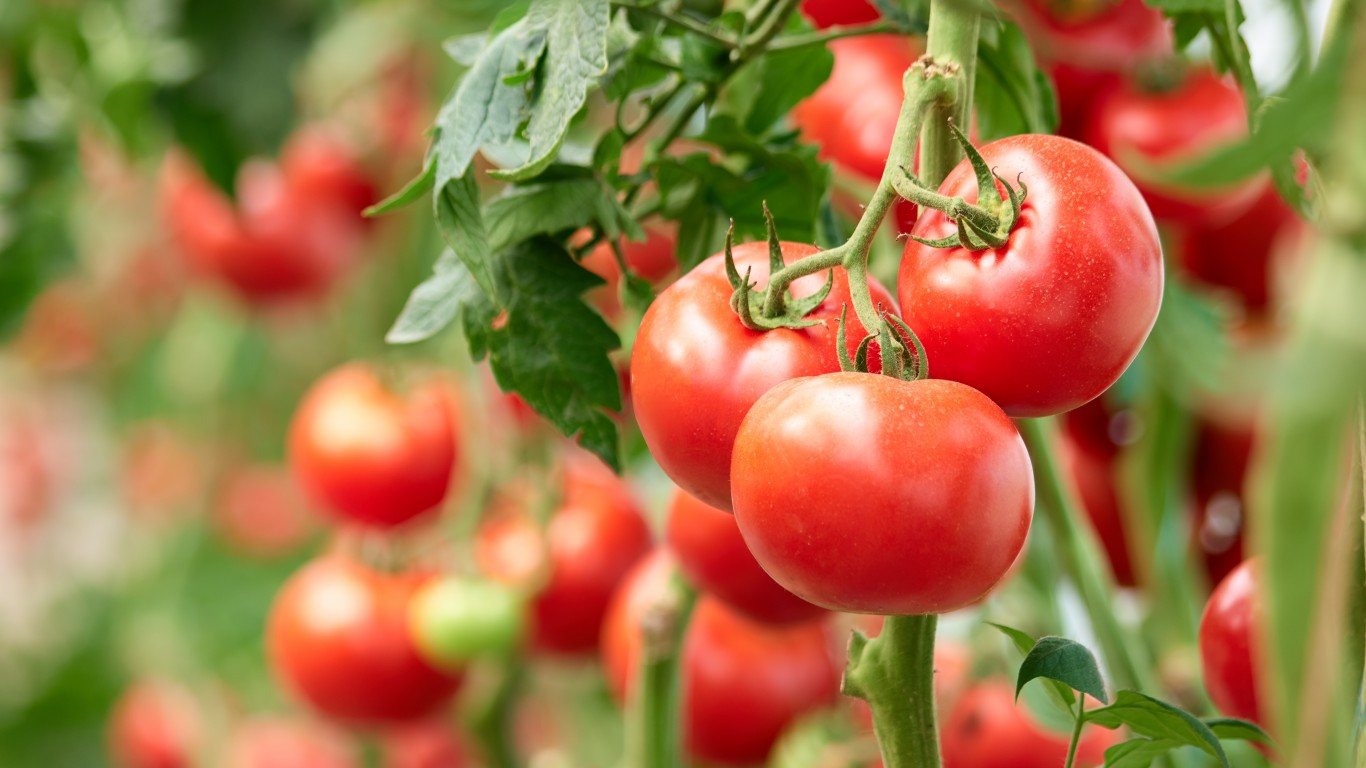
12. Tomatoes
Tomatoes – especially cooked or canned tomatoes, including juice and sauce – are high in the carotenoid lycopene, which multiple lab studies have shown is capable of inhibiting the growth of cancerous cells and tumors. About 17% of tomatoes tested, however, contain traces of the pesticide Endosulfan II, a suspected hormone disruptor.
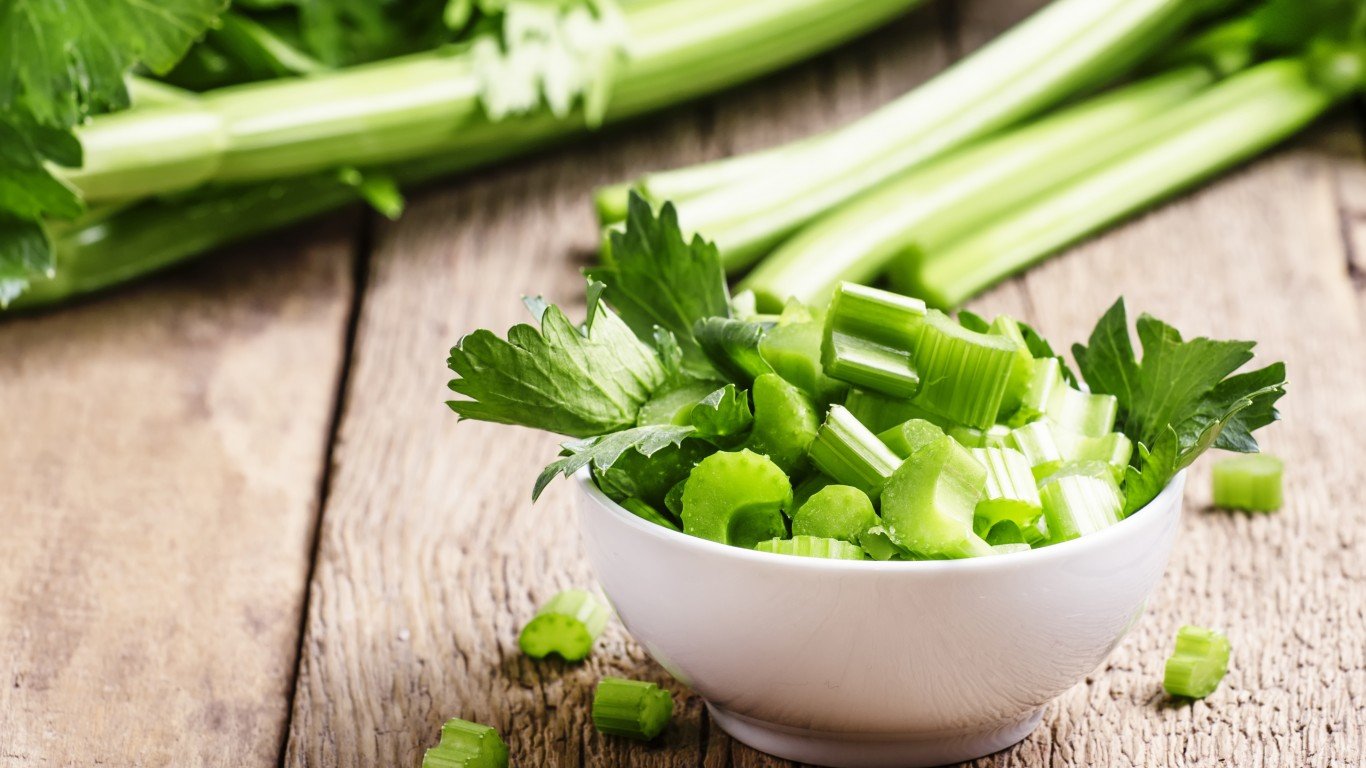
11. Celery
Celery is a negative-calorie food, which means that the body spends more calories breaking celery down than it takes from the vegetable itself, resulting in an average loss of calories. Virtually all commercially grown celery, though, contains the pesticides Chlorantraniliprole and Spinosad, the latter of which is a known bee toxin.
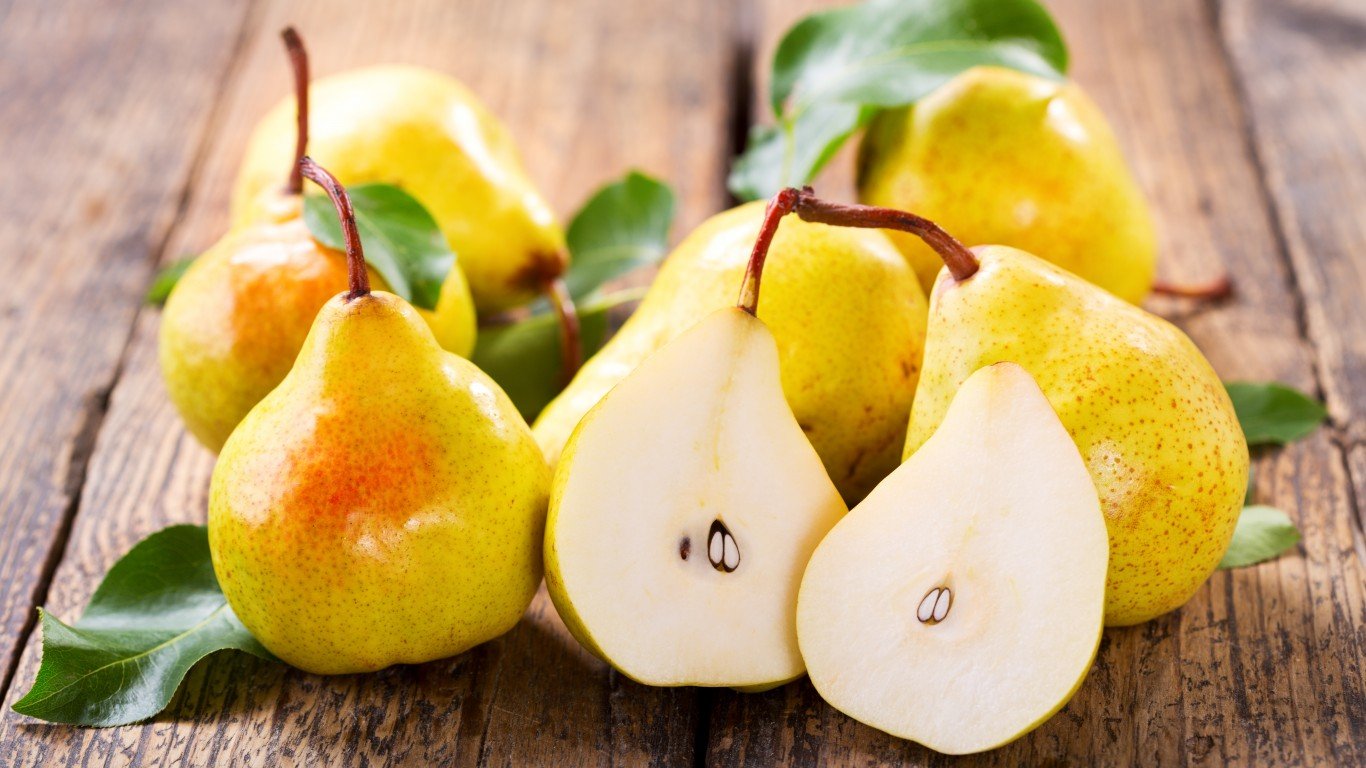
10. Pears
Pears are known to be good for the digestive system and have anti-inflammatory properties. they may also boost heart health and lower the risk of diabetes. The down side? Some 40% of them have been found to contain Pyrimethanil, a possible carcinogen with suspected toxicity.
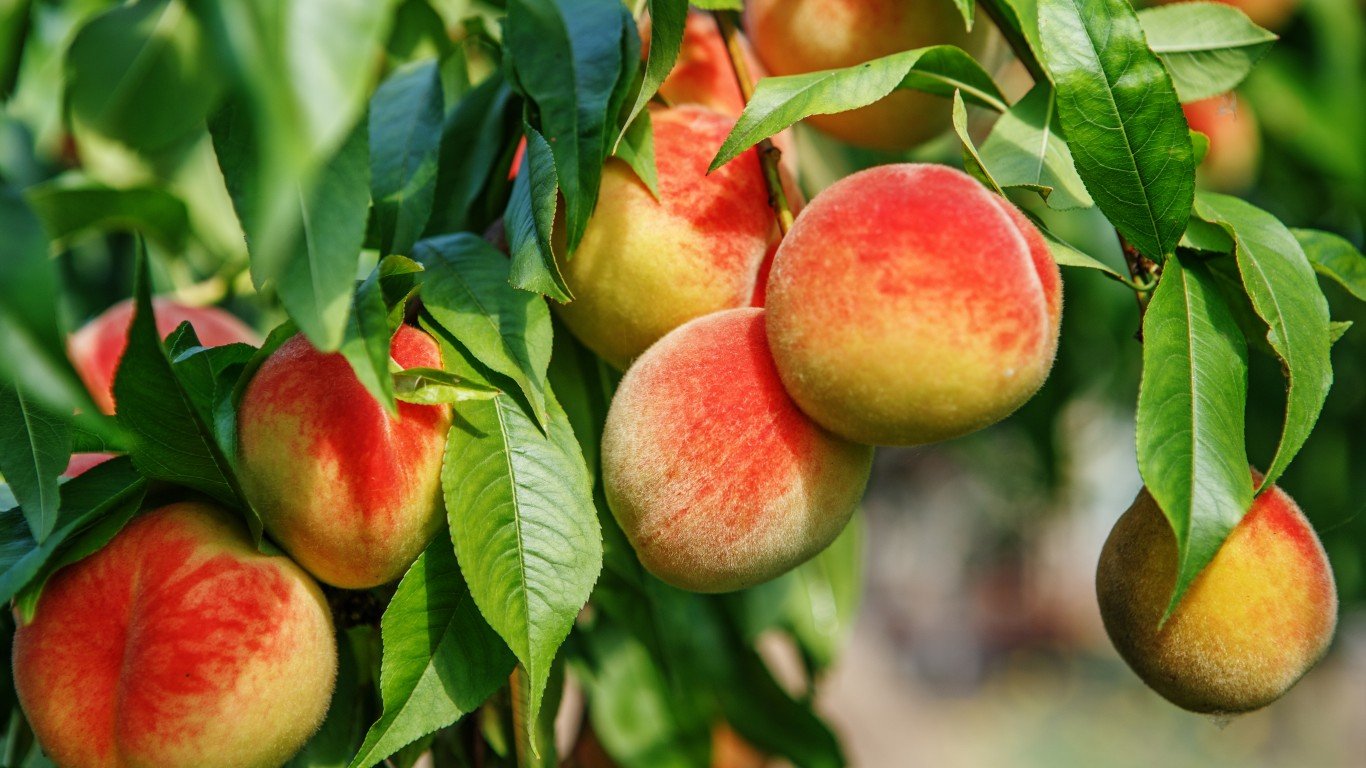
9. Peaches
Besides being a delicious summertime treat, peaches are full of vitamins and minerals, including a healthy dose of vitamin C and antioxidant polyphenols and carotenoids. They may, however, contain the bee toxins Fludioxonil and Phosmet as well as iprodione, a known carcinogen.
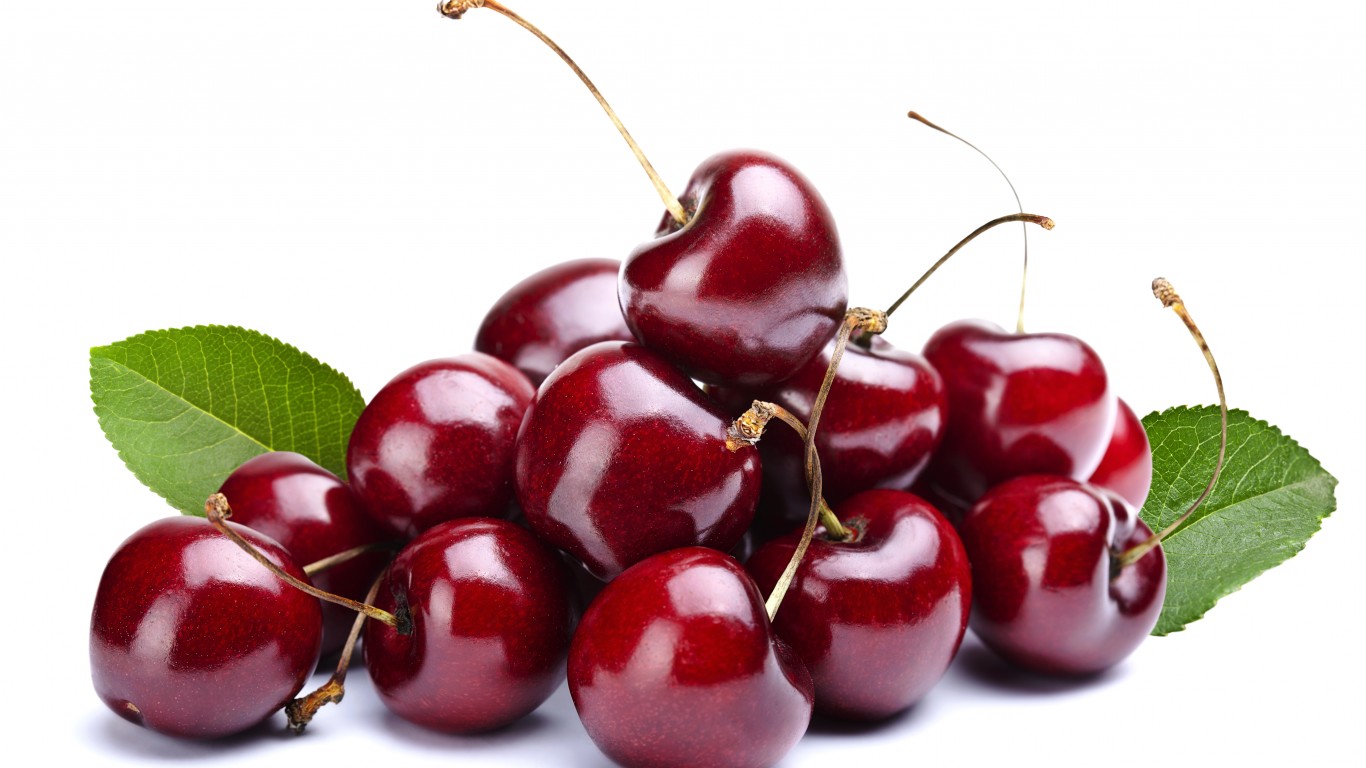
8. Cherries
Cherries are full of vitamins and minerals, and are a good source of potassium, essential for heart health. Among the pesticides they might contain, though, are Bifenthrin, known as a bee toxin and also a developmental or reproductive toxin.






